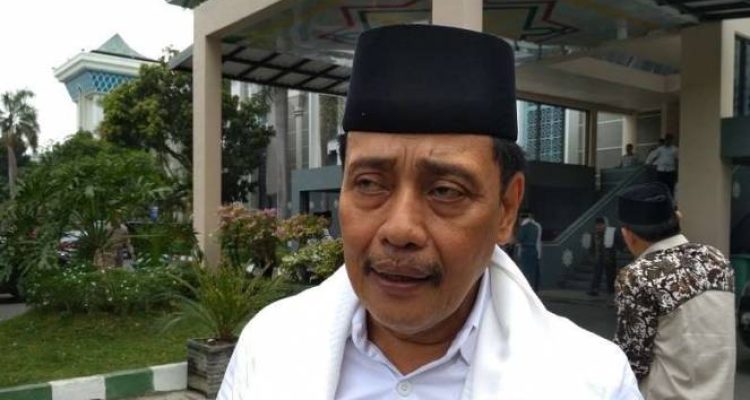Long queues at petrol stations and bakeries. Long lines of cars trying to escape the capital. And long, frightening nights.
Residents of Tehran – still shocked by Israel's sudden attack on Iran in the early hours of Friday morning – speak of fear and confusion, a feeling of helplessness and conflicting emotions.
"We haven't slept for nights," a 21-year-old music student told me over an encrypted social media app.
"Everyone is leaving but I'm not. My dad says it's more honourable to die in your own house than to run away."
'Donya' – she doesn't want to reveal her real name – is one of many Iranians now caught in a war between a regime she loathes and Israel, whose destructive power in Gaza she has witnessed on screen from afar.
"I really don't want my beautiful Tehran to turn into Gaza," she said.
As for Israeli Prime Minister Benjamin Netanyahu's call on Iranians to rise up against their clerical leadership, she has a firm response.
"We don't want Israel to save us. No foreign country ever cared for Iran," she said. "We also don't want the Islamic Republic."
Another woman said that at first she had felt a "strange excitement" to see Israel kill Iranian military officials so powerful that she thought they would live for ever.
"Suddenly that image of power was shattered," she told BBC Persian.
"But from the second day, when I heard that regular people – people I didn't know, people like me – had also been killed, I started to feel sorrow, fear and sadness."
And she said her sadness turned to anger when she heard that the South Pars gas field had been hit, fearing that Israel was trying to turn Iran "into ruins".
For the first time in her life, she said, she has started to prepare for the idea of dying.
More than 220 people – many of them women and children – have been killed since Friday, according to the Iranian authorities.
Israeli authorities say Iranian missiles have killed at least 24 people in Israel over the same period.
Unlike in Israel, there are no warnings of imminent attacks in Iran, and no shelters to run to.
Missiles fall from the sky but a campaign of car bombs in Tehran – as reported by both Israeli and Iranian media – has sewn further panic and confusion.
Even some supporters of the regime are reported to be upset that its much-vaunted defences have been so thoroughly exposed.
And, among many Iranians, distrust in the authorities runs deep.
Donya used to defy the regime and its strict dress code by going out with her hair uncovered.
Now, with her university exams postponed until next week, she's staying at home.
"I get so terrified at night," she said. "I take some pills to help me relax and try to sleep."
The Iranian government has suggested that people shelter in mosques and metro stations.
But that is hard, when the explosions seem to come out of nowhere.
"Tehran is a big city and yet every neighbourhood has been somehow affected by the damage," another young woman told BBC Persian.
"For now, all we do is check the news every hour and call the friends and relatives whose neighbourhood has been hit to make sure they are still alive."
She and her family have now left their home to stay in an area where there are no known government buildings.
But you never know, in a country like Iran, who may be living next to you.
The Israeli assault has divided Iranians, she said, with some celebrating the regime's losses, while others are angry at those cheering Israel on.
Many Iranians keep changing their minds about what they think. Divisions are bitter, even among some families.
"The situation feels like the first hours after the Titanic hit the iceberg," the woman said.
"Some people were trying to escape, some were saying it wasn't a big deal, and others kept dancing."
She has always protested against Iran's clerical rulers, she told the BBC, but sees what Netanyahu is doing to her country as "inexcusable".
"Everyone's life, whether they supported the attacks or not, has been changed forever.
"Most Iranians, even those who oppose the government, have now realised that freedom and human rights don't come from Israeli bombs falling on cities where defenceless civilians live."
She added: "Most of us are scared and worried about what's coming next. We've packed bags with first aid supplies, food, and water, just in case things get worse."
Israel says the Iranian armed forces have deliberately placed their command centres and weapons inside civilian buildings and areas.
Members of Iran's large diaspora are also worried.
"It's hard to convey what it's like to be an Iranian right now," says Dorreh Khatibi-Hill, a Leeds-based women's rights activist and researcher who is in touch with family, friends and other anti-regime activists.
"You're happy that members of the regime – who have been torturing and murdering people – are being taken out.
"But we know that civilians are dying. This is a devastating humanitarian disaster."
And Iranians are not being given accurate information on what is happening, she says.
"The main person in Iran – the supreme leader – is still alive while Iranians are fleeing for their lives," she adds.
"No one wants Iran to turn into another Iraq, Syria or Afghanistan. None of us wants this war. We don't want the regime either."
Post Views: 14












